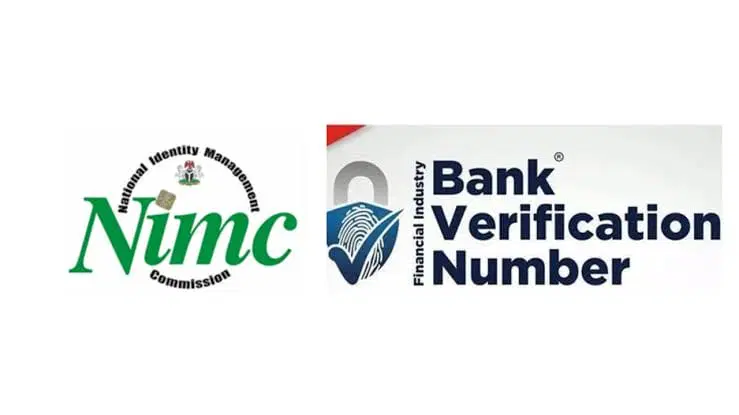On a hazy Tuesday morning, 27-year-old Muhammad Ibrahim stood in a long, winding queue outside a well-known bank along Ahmed Abdulkadir Bank Road in Bauchi. He clutched a pile of paperwork: an electricity bill, passport-sized photos, photocopies of his ID, and the forms he had diligently filled out the night before.
For Ibrahim, opening a bank account was no easy task. The process felt like a test of patience, involving hours of waiting, multiple trips to fix “errors” in his documents, and, at times, the unwelcome need to offer a bribe to speed up the service.
“I dreaded it,” Ibrahim recalled. “I knew I’d have to take an entire day off work, and even then, there was no guarantee everything would be resolved in one trip. They’d always ask for another document or claim my name didn’t match.”
His experience mirrors the frustrations of millions of Nigerians who, before the advent of digitisation, were forced to endure cumbersome procedures simply to access basic banking services. The lengthy and often repetitive account-opening process highlighted the challenges of achieving financial inclusion in Africa’s most populous country.
The narrative began to change with the introduction of the Bank Verification Number (BVN) in 2014. By linking individuals to unique biometric data, the BVN established a centralided system designed to eliminate fraud and cut down on paperwork. According to data from the Nigeria Inter-Bank Settlement System (NIBSS), by July of last year, around 62.7 million Nigerians had enrolled for the BVN.
While the BVN was a step forward, it wasn’t without its challenges. Many individuals still faced discrepancies between their BVN records and national identification documents, which slowed the process.
Then came the National Identification Number (NIN)-BVN integration, a significant breakthrough in the push for smoother banking. With over 110 million Nigerians now enrolled for the NIN, this integration has brought a new level of efficiency to the system.
Announced in 2023 as part of Nigeria’s digital transformation agenda, the BVN-NIN integration was aimed at streamlining account opening by harmonising citizens’ data. The Central Bank of Nigeria (CBN) instructed commercial banks, mobile money operators, and other financial institutions to use and integrate customers’ BVN and NIN data when opening accounts. This integration is revolutionising the account-opening process, removing the need for excessive paperwork and significantly reducing processing times.
It is no longer news that the integration of BVN and NIN has not only simplifies account opening in Nigeria but also strengthens the verification process, reducing fraud and identity theft risks.
This this giant stride, with just a single point of contact for identity validation, banks can ensure that customers are who they say they are, enhancing the overall security of financial transactions.
For the unbanked, this integration represents a significant leap toward financial inclusion, enabling those who were previously excluded from the formal banking system to access essential services.
Azare residents like Musa Abdullahi, 31, the change was almost miraculous. As a small business owner, Musa frequently encouraged his workers to open bank accounts so he could pay them digitally. But their lack of proper documentation always posed a challenge.
“Since the integration, it’s been much easier,” Abdullahi said. “They only need their NIN, and the bank takes care of the rest. I’ve seen accounts opened in less than 30 minutes!”
Banks no longer require mountains of paperwork; they simply access a customer’s details through NIN-BVN databases. This streamlined system not only reduces redundancy but also ensures that errors from conflicting records are minimised.
Banking officials have seen the difference firsthand. According to a customer service representative at a leading bank in Bauchi who pled for anonymity, the integration has significantly reduced the pressure on staff.
“Before this system, verifying a customer’s information was like solving a puzzle,” he explained. “Now, with the BVN and NIN linked, we can pull up all the necessary details instantly. It’s efficient for us and stress-free for customers.”
The impact of this shift has been profound. Nigeria’s financial inclusion rate, once hampered by bureaucracy, has seen notable improvement. More people in rural areas, who previously found it intimidating to engage with formal banking systems, are now embracing the opportunity.
“I opened an account last week in 20 minutes!” beamed Amina Yusuf, a first-time account holder from Jos. “All I had to do was provide my NIN. I didn’t even need to bring any other documents.”
Despite the strides, challenges persist. Not all Nigerians have access to NIN registration centres, especially in remote areas. The rollout of the integration has also faced criticism over data privacy concerns.
“While the integration is commendable, there’s a need for robust cybersecurity measures,” Adamu said. “Without them, we risk turning this innovation into a vulnerability.”
Nevertheless, for Ibrahim, Musa, and millions of others, the NIN-BVN integration is a glimpse into a future where banking is simple, efficient, and accessible. The once-dreaded task of opening a bank account has transformed into a process so straightforward that it hardly warrants a second thought.
Back in Bauchi, Ibrahim walked into the same bank recently, this time to open a second account. Within minutes, the task was complete. He couldn’t hide her excitement.
“Is this even the same country?” she joked.
For Nigeria, the answer lies in innovation—proof that with the right tools, even the most daunting processes can become a breeze.
Activists like Fahad Adamu, a tech advocate, warn that the government must do more to protect citizens’ information. He said NIN-BVN integration simplifies the bank account opening process by consolidating and harmonising individual identity data across Nigeria’s financial and national identification systems. With a centralised database linking the unique biometric details of the Bank Verification Number (BVN) to the National Identification Number (NIN), banks can instantly verify a customer’s identity without requiring extensive paperwork or multiple visits.
“This seamless verification process significantly reduces barriers to entry, particularly for underserved populations in rural areas or those without formal documentation,” Adamu explained. By streamlining account creation, the integration accelerates financial inclusion, enabling more Nigerians to access banking services and participate in the formal economy.
He warned that the interoperability of the NIN-BVN database raises critical considerations regarding data privacy, security, and governance.
While the unified system enables better collaboration between financial institutions and government agencies, it also heightens the risks of data breaches and misuse. Strong cybersecurity measures and clear data protection policies are crucial to maintaining citizens’ trust and safeguarding sensitive information.
“Interoperability should be supported by regular updates and continuous monitoring to avoid errors or exclusions caused by outdated records. When managed effectively, this integration has the potential to transform Nigeria’s financial sector, drive economic growth, and close the gap in financial inclusion,” he stated.
–This report is produced as part of the DPI Africa Journalism Fellowship Programme, a collaboration between the Media Foundation for West Africa and Co-Develop





